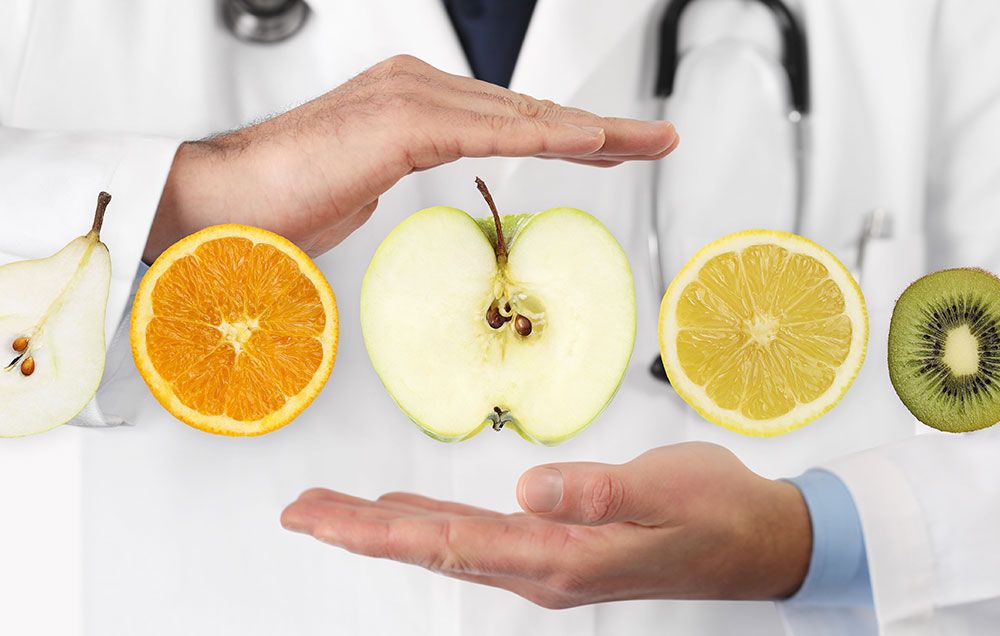All Categories
Featured
Table of Contents
-1
Or they might simply have a passing passion in the area. It's something like the distinction in between your pal that possesses a set of clippers and a qualified barber. Sure, you can obtain a hairstyle either means. You can be a lot more positive in the skills the barber brings to the table."Anyone can call themselves a nutritional expert.
-1"Being a dietitian implies you've finished the needs set by the Academy of Nourishment and Dietetics to provide nutrition counseling and clinical nourishment therapy."You'll discover dietitians in a selection of work setups, consisting of: Medical facilities and medical professionals' workplaces. Area health and wellness and health organizations (like fitness centers and entertainment facilities) - clinical nutritionist.

-1
In addition to making RD and LD credentials, some signed up dietitians may complete specific training to be able to better counsel people with certain nourishment objectives or wellness problems. Some dietitians might earn certifications in specializeds like: Sports dietetics (CSSD). Some accreditation programs might be open to individuals that aren't signed up dietitians.
-1Where you look for aid issues. Specifically if you're coping with a condition that influences your eating habits."If you wish to make certain you're obtaining the very best evidence-based recommendations from an expert in the area, a dietitian is constantly mosting likely to be your best option," Sommer recommends. However that's not to state some people who haven't finished the specialized training it calls for to be a dietitian don't have anything to use.
Eating Disorder Dietitian
-1"Your wellness is essential, so you do not desire to place it in the hands of simply anyone.".
-1The response is there is a difference. As an Accredited Practising Dietitian and Accredited Nutritional expert, I think it is incredibly crucial to find a practitioner ideal matched to your individual needs; and it is crucial to make an enlightened choice. In Australia there is no legal defense over the terms 'dietitian' and 'nutritional expert.' This suggests that any individual (with a range of education and learning and training) can describe themselves as a dietitian or a nutritionist.
-1In comparison, the term nutritional expert is not as controlled as APD. While many nutritionists undergo university training, it is not to the extent of dietitians.
-1Nutritionists are not informed in medical nutrition treatment and can not prescribe diet regimens in illness states. This includes both in individual or group nutritional treatments. Nutritional experts are only able to give advice for general wellness problems such as weight monitoring, nutrition throughout the life cycle, or nutrition in various nutritional options (such as veganism and vegetarianism).
Sports Nutritionist ( Melville)
-1It is vital to aim out that, as a result of improved education, all APDs are instantly Approved Nutritional experts and have the ability to give every one of the solutions a nutritionist can supply. The aim of both nutritionists and dietitians is to aid people achieve optimum wellness and wellness via boosting nutrition. The primary distinction in between a dietitian (only those with the APD title) and a nutritional expert is that APDs have gone on to additional research and are certified to offer clinical nutrition treatment to people and to teams.
-1APDs performance is also constantly kept track of and they are required to complete regular education. APDs are bound by a Code of Ethics, and those that do not abide (along with those who do not finish the needed continual expert advancement) lose their APD title. APDs are additionally registered with Medicare, DVA and many wellness funds; whereas, nutritional experts are not.

-1
Both are healthcare experts, the titles 'Dietitian' and 'Nutritionist' are frequently incorrectly swapped - vegan nutritionist. The title of a Registered Dietitian (RD) is safeguarded by legislation, and practitioners should be registered with the Health & Care Professions Council (HCPC).
Sports Nutritionist
-1The title of Registered Nutritional expert is granted to registrants with the UK Voluntary Register of Nutritionists (UKVRN). By completing an innovative level such as a master's in nutrition and/or doctorate program, Registered Nutritionists can proceed to come to be researchers and educators in the area of nourishment.

-1
Externally, "dietitian" and "nutritionist" are synonyms. They both help individuals develop wholesome, lasting consuming practices and become general healthier individuals. But the main difference between dietitians and nutritional experts exists in the legal constraints that each title brings. Dietitians, additionally described as registered dietitians (RD) or registered dietitian nutritionists (RDN), can deal with clinical medical concerns. renal dietitian.
-1Often, insurance coverage providers will certainly cover expenses connected with a dietitian's solutions. While they often work in institutions, gyms, wellness food stores, and other much less medically-oriented atmospheres, they can additionally work in several of the very same places as their RD colleagues.
-1Some states call for nutritional experts to hold a work certificate, yet others don't regulate the duty in any way. For people and customers, though, this means that their insurance service providers do not usually cover services from a nutritionist. If you're exploring which course is appropriate for you, below's what you require to understand about the differences in coming to be a nutritional expert versus a dietitian.
Latest Posts
Eating Disorder Dietitian
What Is The Best Telehealth Nutritionist Company Near Me
Freebies